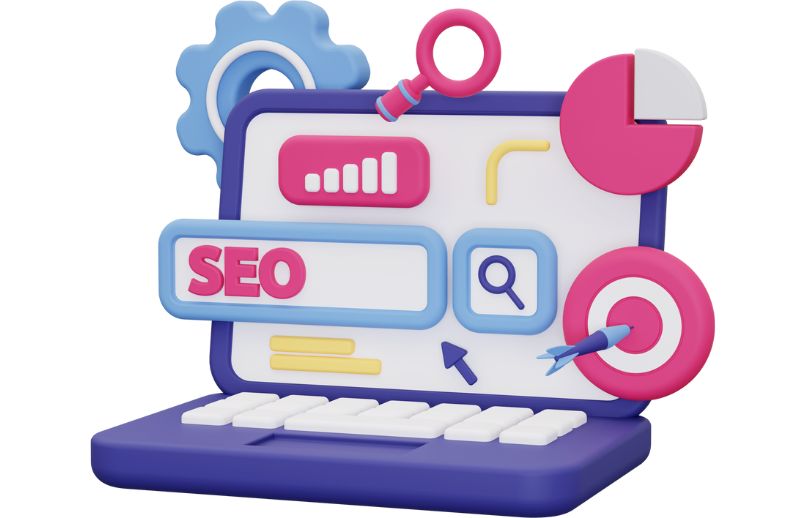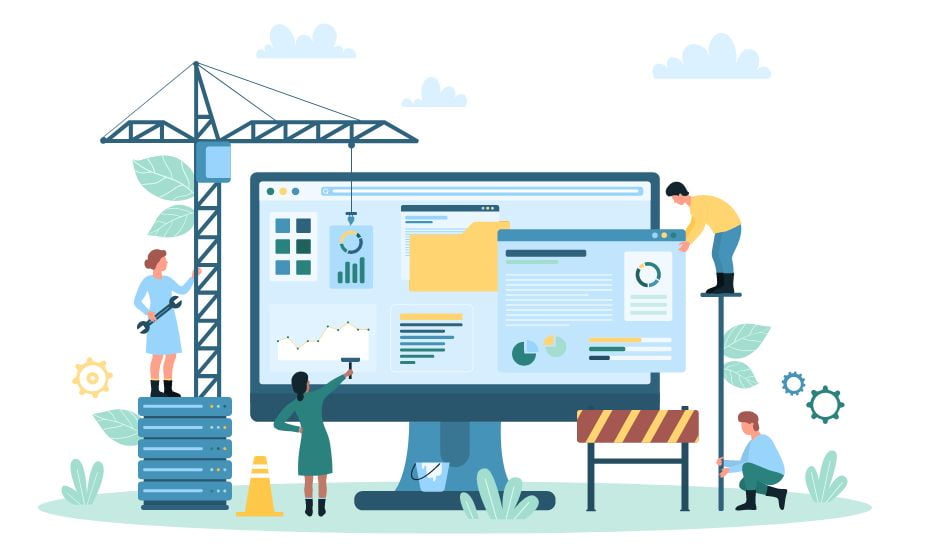Search Engine Optimization is crucial to enhance the ranking of a web page in search engine results pages (SERPs). SEO requires time to get results; consider SEO a diet that brings results after a few months. Therefore, a website cannot afford any technical SEO issues while optimizing for search engines because if problems occur, they will ruin the efforts.
Technical SEO involves optimizing the website’s infrastructure and backend to improve its visibility and search engine rankings. The issues related to technical SEO must be solved on time to bring the website up on SERPs.
In this article, we will discuss the common technical SEO issues that actually matter.
What Is Technical SEO?
Technical SEO is the process of website or server optimization that helps search engine crawlers to crawl easily and index that website more effectively. It also assists in making websites easily understandable for search engines to increase the chances of ranking.

Common Technical SEO Issues
Technical issues need to be addressed to make a visible position on SERPs and drive massive potential traffic to your website. It is necessary to identify the issues before handling them. Here you will find some technical SEO issues that actually matter:
1- Copied Content
When the same or similar content appears on the web on more than one website, it’s called duplicate content. It is not good SEO because of two main reasons: It causes undesirable URLs to show in results and can share link equity. It is not necessary that duplicate content is created intentionally, but it may be created unintentionally. To avoid copied content on your website, use tools like Copyscape to check before publishing.
2- Indexability Issues
Indexability refers to a web page’s capability to be included in search engine results. If a page cannot be indexed, it will not appear on search results and will not drive any search traffic. A web page requires three conditions that are capable of making it indexable:
- The page must be crawlable. If you haven’t restricted Googlebot’s access to your website using robots.txt and your website has less than 1,000 pages, then you should be fine with indexability.
- A web page should not have a no-index tag on it.
- The webpage must include a canonical URL.

3- Sitemap Issues
A sitemap should only include web pages you want to index by search engines. Sitemaps recommends search engines which web page is important and should be indexed. They must be updated regularly to ensure that your web pages are being indexed. When they are not updated regularly, they will create issues related to them. For example, sitemaps will start to show broken pages and un-indexed web pages, which will decrease the efficiency of your website.
4- HTTPS Issues
Google or any other search engine is programmed on the basis of providing security to their visitors to enhance user experience. Search engines will not rank poor user-friendly and unsecured websites to their users. If your website has not any HTTPS security protocol, then search engines will consider your site as a potential danger for their users. Thus, your website will experience low ranking and no organic traffic for your site.
Read Also: Local SEO Guidelines – How to do it right?
5- Broken Links
Broken Links understandably interrupt users and spoil brands’ first impressions in front of customers. In addition, broken links take away the enjoyment and divert the attention of content readers while reading content. Google notices those types of issues and penalizes the content accordingly. It is necessary to address this issue and increase the chances of being on the top. Businesses should also monitor their internal and external catalog to minimize the number of broken links to achieve success.
6- Poor Mobile Accessibility
The website should be mobile-friendly because providing a useful experience to mobile users is essential. In the past time, people used desktops and laptops to place orders and now, most people place orders from mobile phones. Thus, if your website is not optimized for mobile phones, you will miss the opportunities to approach the organic audience. Test your site to ensure it is optimized for mobile searches to improve the organic audience.
7- Slow Page Speed
Page loading speed rate is an important factor for user experience and search engine rankings. Slow-loading pages increase bounce rates and decrease conversion rates. You should improve the speed of the web page by increasing image sizes and enabling browser caching. You must also minimize the server response time and use content delivery networks (CDNs).
8- Improper URL Structure
The descriptive, clear and concise URLs can help both search engines and understand the content of a web page. You should avoid using lengthy and cryptic URLs that do not provide any meaningful information. You can use hyphens to separate words in URLs and also ensure they are relevant. This strategy will help you to drive an organic audience to your site and optimize your site for search engine ranking.
Conclusion
Technical SEO issues may not always be visible to website visitors but significantly impacts search engine rankings. In addition, it also impacts businesses’ online visibility and decreases the organic audience for their website.
Businesses can address these technical SEO issues, such as indexability issues and poor mobile accessibility, to increase organic traffic to their website. Thus, your website is ranked high on SERPs. Corporations should stay proactive in monitoring and resolving technical SEO issues to ensure their website is optimized for success and the expected results.


